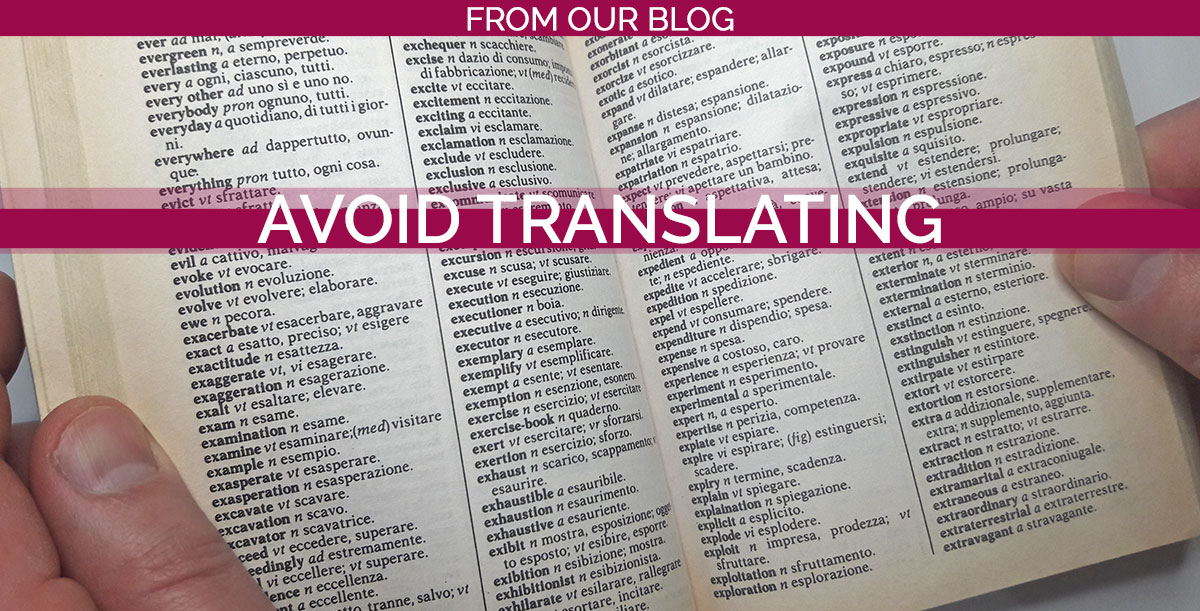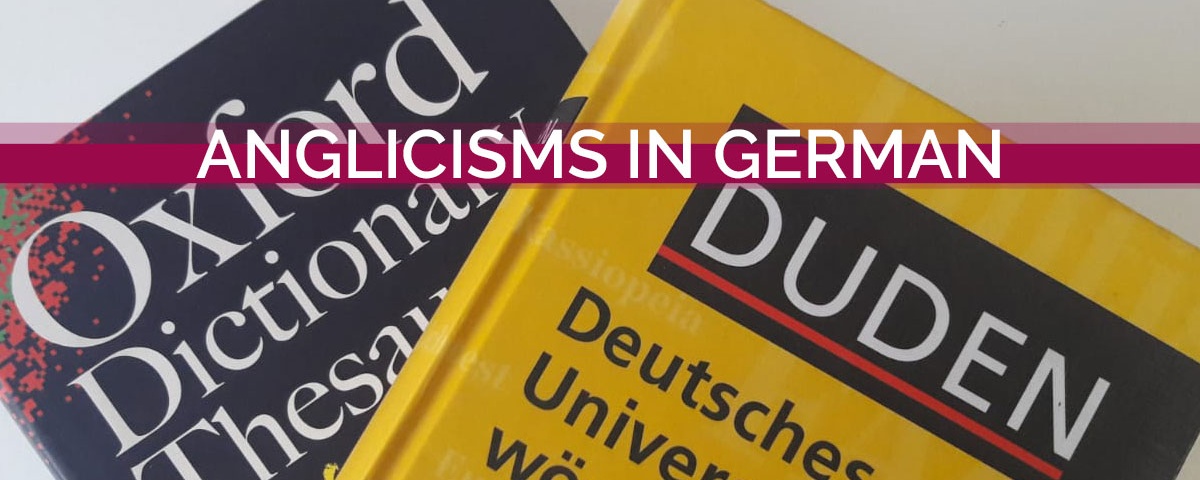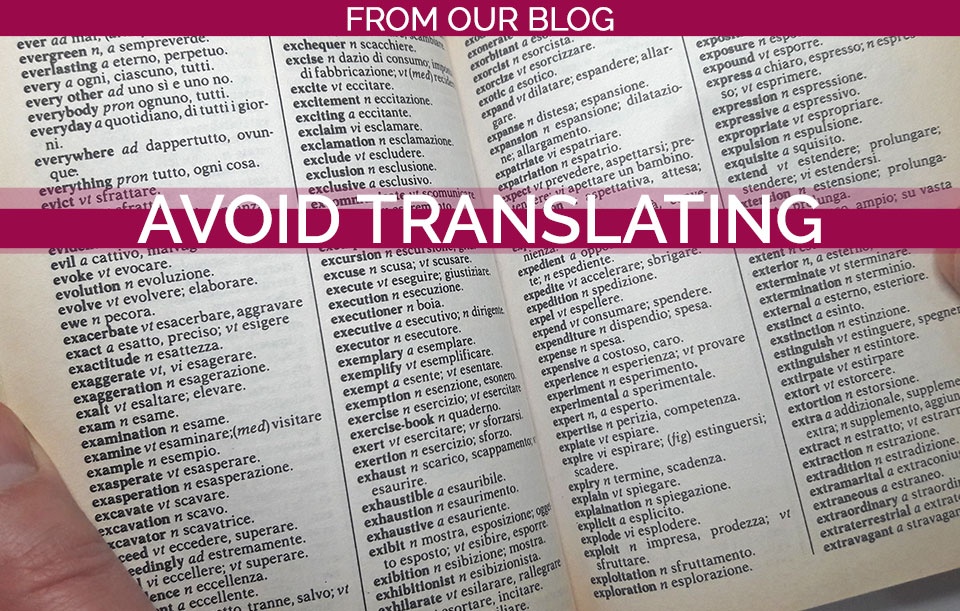
Avoid translating
20/02/2021
The benefits of hiring a professional interpreter
23/11/2023Anglicisms in German
Those words of English origin that we use in Goethe's language without realising

M
any foreign languages today reflect our increasingly 'social' lives and sometimes, without realising it, we use a lot of English sounding words without even knowing what they mean in the language we’ve borrowed them from.
That's right: borrowed. In fact, when we speak of 'anglicisms' we are referring to a word that we have transferred from English into another language, sometimes even distorting its meaning..
That's right: borrowed. In fact, when we speak of 'anglicisms' we are referring to a word that we have transferred from English into another language, sometimes even distorting its meaning..
Anglicisms in German
T
his is also the case in the German language, which tends not only to transform the word orthographically, but also to assimilate it to the extent that it completely changes its meaning. This means that in many cases, a German or Austrian or Swiss person only knows the word in the context in which it is used in German.

Is Handy an English word?
The German word corresponding to 'mobile phone' or 'smartphone' is 'Handy'. The German language in this case, as in many others, has not borrowed the English word 'smartphone' but uses a word that it has radically integrated. In fact, handy in English is an adjective meaning ‘practical’, ‘easy to use’, but its use in German dates back to the 1930s. In fact, devices produced for the military sector, instead of being called walkie talkies, were called handie talkies to emphasise how easy they were to use. And so, over the years, this expression has changed from handie to Handy - with a capital letter, of course, because in German this is a rule for nouns.

What would an English person understand when hearing Public Viewing?
In Germany, however, this expression is associated with something fun and convivial, i.e. watching a game or sporting event projected on a big screen. In this case, the German language has literally combined the meanings of ‘public’ and ‘viewing’. There is also a similarity in English here, although British people, depending on the context, might also think of something bad, namely a person whose body is exposed publicly after their death.

Is Fotoshooting an English word?
The term Fotoshooting, which is used in German to refer to a photo shoot, does not exist in English either in this way or with a different spelling (e.g. by replacing the sound f with ph): in English we would simply say ‘photo shoot’. Depending on the context, the word shooting could also mean ‘gun shooting’ in English.

What does Showmaster mean in English?
The word showmaster, which at first glance might seem perfectly English, is actually not. This word in German means a television presenter or TV show host. We will see in the second part of this blog post that this term is a perfect example of nouns that seem to have been borrowed from English, although this is not actually the case.

What does it mean to say that a German person owns an Oldtimer?
Well, it would be the owner of a vintage car, because this word in German indicates a vehicle which is usually more than 30 years old. It is a compound word made up of ‘old’ and ‘timer’ because in German we tend to create words by compounding them. What if you said old timer to an English person? He would think of an elderly person, a senior who has a lot of experience because of their age.
Can we define all these words as anglicisms?
I
n fact, the VDS or Verein der deutschen Sprache (German Language Association) calls them ‘pseudo-anglicisms’ as they take on a different meaning in German. This institution was set up to defend the German language from the increasing use of anglicisms and has compiled a list of all those used in German.
What VDS emphasises is the fact that English words are imported to replace German words in a given context without much thought. This is said to be due to a sense of 'obedience' or 'submission' to the English language which, however, is to the detriment of the German language itself and results in its impoverishment.
This is certainly true, also because although we all love the English language, it is important to continue to keep other languages, which are extremely valuable, alive. In German, there are also 'untranslatable' words, which express such a deep meaning that has no corresponding term conveying exactly the same meaning in another target language. The case of anglicisms, however, is very different because they are not untranslatable words, but simply the result of linguistic contamination.
This is certainly true, also because although we all love the English language, it is important to continue to keep other languages, which are extremely valuable, alive. In German, there are also 'untranslatable' words, which express such a deep meaning that has no corresponding term conveying exactly the same meaning in another target language. The case of anglicisms, however, is very different because they are not untranslatable words, but simply the result of linguistic contamination.

I
s this phenomenon affecting other languages as well?
Yes, of course. Every day we are invaded by a myriad of words that we learn to use and that we sometimes use without even being aware of.
Yes, of course. Every day we are invaded by a myriad of words that we learn to use and that we sometimes use without even being aware of.
This blog post has been written in Italian by Daniela Carbini and it is also available in Italian and French. Click on the flag on the top right to change the language.
Daniela Carbini works as a translator, interpreter and lecturer after graduating from the University School for Interpreters and Translators in Forlì in 2005. Her working languages are English and German and over the years she has acquired experience in translation in various fields including patents, marketing, e-commerce and user manuals. She has been working as a lecturer of liaison interpreting at public and private universities. She also provides courses for language certifications and corporate training programmes.








